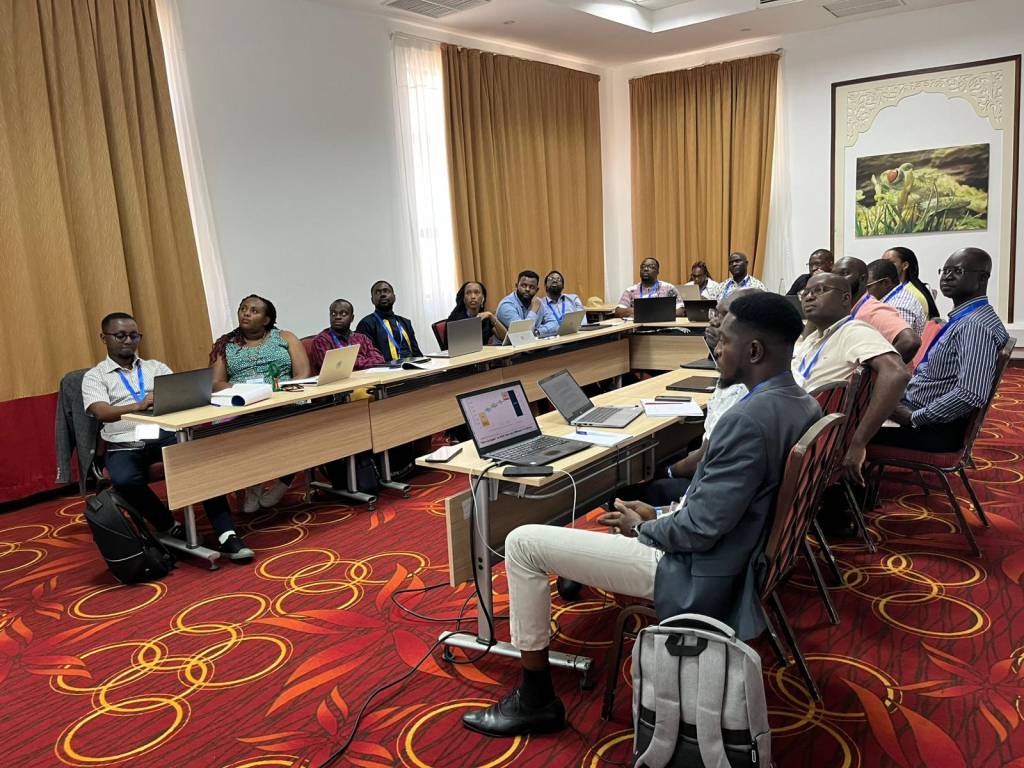COP29: African Climate Experts Call for New, More Ambitious Climate Finance Goal
Ahead of the 29th United Nations (UN) Climate Change Conference of the Parties (COP29) talks in Baku, Azerbaijan in November 2024 and in the build-up to the African Group of Negotiators (AGN) meeting in Nairobi held on August 14–16, 2024, African climate finance practitioners met in Mombasa, Kenya, to deliberate on expectations for the new climate finance goal.

Discussions at the consultation affirmed that Africa must chart a new course of action to shape the future of climate finance, just as the new climate finance goal offers an opportunity for Africa to strengthen her agency and strategically position the goal’s determination around the continent’s real and felt needs, realities, and demands.
The African climate experts emphasized that developed countries must commit, at least $5.9 trillion, by 2030 to developing countries’ growing needs and priorities to finance adaptation, mitigation, the just transition, as well as loss and damage. These funds should mainly come from the public coffers of wealthy nations and avoid debt instruments that exacerbate the debt burden of developing countries.
Iskander Erzini Vernoit is Co-founder and Director of Imal Initiative for Climate and Development, a non-profit climate think-tank based in Morocco. He said the world will fail to rise to the climate challenge if the new financial goals are set based on the politics of today. “It cannot be an incremental increase from the $100 billion, but rather must commit well over a trillion in annual international public finance to respond to what the science and studies are calling for,” he said.
Samson Mbewe is the Technical Programme Manager and Lead Researcher on Aligning Financial Flows with the Paris Agreement in Africa at the Cape Town-based South-South North (SSN), focused on mobilising capabilities and resources to enable equitable and climate-resilient development.
Mbewe believes that to truly address the climate crisis in Africa, the New Collective Quantified Goal (NCQG) on climate finance must steer clear of debt instruments, especially those that masquerade as climate finance and yet are market-related loans, adding that the NCQG should focus on fair and sustainable solutions that genuinely support global efforts without creating additional financial strain.
“Developing countries are in dire need of grants, especially for their adaptation efforts. Loans of any sort would need a higher degree of concession. With many developing countries already burdened by significant debt, adding more through ‘climate finance’ could deepen financial struggles rather than help. We must find ways to support climate action without increasing debt. We also need to remember that developed nations have a responsibility to help those who have been most affected by climate change.”
Julius Mbatia Global Advocacy and Development Policy Manager at ACT Alliance, a coalition of more than 140 faith-based member organizations promoting development, advocacy, and humanitarian assistance. He said the post-2025 finance goal must constitute a quantum that is commensurate with the needs of developing countries to fairly transition, support adaptation, tackle loss and damage, as well as set a low carbon climate-resilient path.
“The quantum must not be short of what climate needs demand, currently not less than $5.9 trillion by 2030, as it will not signal urgency and ambition. Africa’s request for $6.5 trillion until 2030 affirms the necessity of a needs-based finance goal. A quantum that does not constitute public finance at scale in grants for adaptation, and loss and damage, shall not resonate with the climate realities of developing and vulnerable countries. A quantum that insists on market rate loans shall do more harm to already highly indebted vulnerable nations in regions such as Africa,” he said.
Eva Peace-Gatwa, the Co-Founder of Loss and Damage Youth Collaboration (LDYC), said if the climate finance goal is set without agreeing to a common definition of climate finance, Africa will be setting herself up for failure. She said there will always be mistrust when it comes to climate finance and a high risk for humanitarian aid, official development assistance finance, and other finance to be reported as climate finance, which calls for transparency and accountability.
Julius Ng’oma, National Coordinator for the Civil Society Network on Climate Change (CISONECC) in Malawi, says financial resources mobilized and provided for under the operating entities of the COP financial mechanisms have proved to be difficult to access due to challenging formats of procedures, requirements, and timelines. “We have to ensure that these processes are simple because success in the delivery of an ambitious and effective climate goal will be measured by the simplification of access modalities to climate finance for developing countries under the COP mechanism.”
Similarly, Adrian Chikowore, a Researcher at the Harare-based Institute for Economic Justice (IEJ), said the new climate finance goal should be set based on sustainable financing options that do not keep developing countries in vicious cycles of debt, noting that private sector-led finance should not be the core or central to climate finance as it often overlooks the needs of those most affected by climate change, offering piecemeal solutions that fail to address systemic inequalities.
The African climate experts unanimously urged developed countries not to derail climate talks at COP29 with discussions on the contributor base; instead, they should stay within the confines of the UN Climate Convention and the Paris Agreement, which place responsibility on these countries to provide and lead the mobilization of finance to support climate action.
















